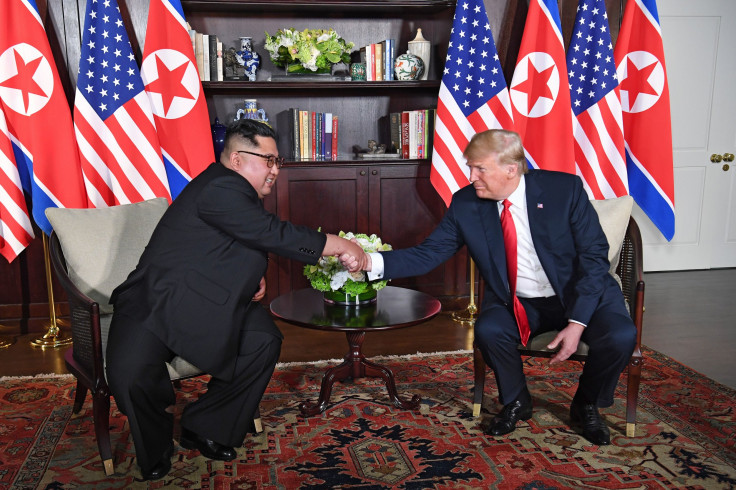North Korea Denuclearization: Differences With US Unresolved Before Second Trump-Kim Summit

A U.S. envoy for North Korea said Monday the two nations were yet to narrow their differences on the denuclearization deal before the second summit between President Donald Trump and North Korean leader Kim Jong Un. Stephen Biegun said this after a meeting with a visiting South Korean parliamentary delegation in Washington, D.C.
Biegun said, “It is a long road to normalizing ties with North Korea, signing a peace treaty and establishing the foundation for economic prosperity on the Korea Peninsula, but (the U.S. government) has chosen to (work toward that). I hope North Korea makes the right choice and I believe it can.”
Biegun met North Korean official Kim Hyok Chol in Pyongyang earlier this month to finalize the agenda for the summit that will be held on Feb. 27-28 in Hanoi, Vietnam. According to the delegation members present at the meet, both sides laid out what they sought from the summit and will start narrowing the differences down in the next round of talks.
A delegation member quoted Biegun as saying, "With only two weeks until the summit, it will be difficult to resolve all the tricky issues." It will, however, be possible if both sides manage to agree on a timeline for the denuclearization, he added.
While the U.S. demanded concrete steps toward denuclearization and asked for an inventory of the country's nuclear and ballistic missile programs, North Korea sought relief from sanctions and a formal end to the 1950-53 Korean War. Trump and Kim had their first summit in June 2018 in Singapore where they made an agreement that included a commitment by North Korea to completely denuclearize the country in exchange for security assurances for Pyongyang.
Biegun said his recent meeting with the North Korea official was just the first round of preparatory talks and while there was an agreement about the agenda, both the countries would need time to understand each other.
The meeting held in Pyongyang was attended by U.S. Deputy Secretary of State John Sullivan and was led by South Korea’s National Assembly Speaker Moon Hee-sang.
After the Singapore summit in June 2018, the relations between Trump and Kim seemed to have improved quite a bit despite the North pushing its agenda of relief from the sanctions while the U.S. emphasized that the sanctions will be lifted only after complete denuclearization.
During his State of the Union address on Feb.5, Trump announced he would meet Kim for a second summit in the last week of February. Later he tweeted details of the meeting and also praised the North Korean leader. He, in a tweet, said he understood Kim’s capabilities and knew the country will become a great economic powerhouse. He also said the U.S. has a "very good dialogue" with North Korea even though there were signs of the two countries having reached an impasse.
North Korea conducted no nuclear or missile tests since June, though the Asian nation is still not willing to give up its arsenal. This contradicts Trump, who said in January, “Now I say this, North Korea, we’re doing very well. And again, no rockets. There’s no rockets. There’s no anything. We’re doing very well.”
After repeated demands from the U.S. about taking concrete steps toward its nuclear disarmament, North Korea agreed “in principle” to allow verification by the International Atomic Energy Agency (IAEA). Negotiators from the U.S. and North Korea reached a tentative agreement in October 2018, under which the IAEA inspectors will be granted access to nuclear and missile testing sites in North Korea for the verification for their disassembly.
An official familiar with the situation told the Korean Times on Monday that the North will guarantee the safety of the inspectors and their activities until the verification process is complete.
“Pyongyang will comply with its obligations under the UN Security Council (UNSC) resolutions to cooperate with the IAEA and properly address outstanding issues,” he said.
Biegun, however, said the U.S. policy toward North Korea remains on the final, fully verified denuclearization, which also means the elimination of all weapons of mass destruction, their means of delivery and production.
© Copyright IBTimes 2025. All rights reserved.





















